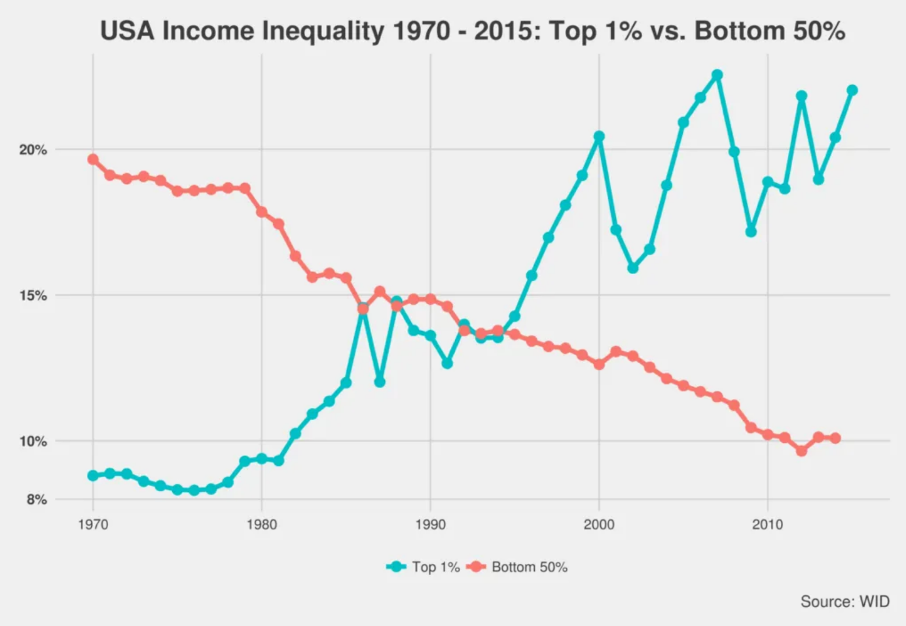After populism
Instead of looking at populists’ lies, it’s worth taking a look at the few truths they rely on: voters do recognize that liberal democracies have not worked in their favour. Can we ever shake off the demagogues and assimilate the genuine, if disruptive, energies of populism into a responsive democratic process? Relying on mere chance could be a way to renew representation.
A great deal has been said about the errors of populist politics, but the puzzling thing is that populist politicians seem to get some things right. Their interventions may range from the absurd to the catastrophic, but there is no denying that they are responding to genuine social issues swept under the carpet in the years of neoliberal hegemony. Current critical theory does not possess the tools to explain this aspect of the rise of populism.
Those of us working within the framework of this intellectual tradition have put most effort into providing descriptions of disillusionment or false consciousness, demonstrating that people blinded by ideological articulations cannot correctly assess their real condition, and proving that knowledge is produced and reproduced by power. Nonetheless, dazed by ideology as they may be, ordinary people have observed some fundamentally important facts: that trickle-down is a fallacious theory; that hard work does not necessarily bring wealth; that the proverbial top 1% of society is getting richer while the rest, at best, stagnates; and that our representatives fail to represent us and instead cater to interest groups of various kinds.
It is as though the public had acquired some kind of political blindsight or – to put it in more philosophical terms – as if some kind of basic social and political disclosure (or alētheia) were in evidence, allowing the truth to shine through a curtain of lies. Some might consider this a troubling development.
What makes understanding and countering populism so difficult is our predilection for talking about populists, while failing to listen to what they have to say. We consistently assume they must be wrong. I would suggest, instead, that it might be more helpful to revisit an alternative position, similar to that which writers from Wilhelm Reich to Klaus Theweleit adopted in their psychoanalytical analyses of fascism. The masses have not been manipulated into populism: the ‘populist desire’ is entirely genuine. What needs to be examined is the origin and logic of the impulse.

Photo by Lorenz Seidler from Flickr Kunsthalle Wien: Politischer Populismus Opening esel.cc/populism_kunsthallewien | Foto: eSeL.at
Identity
Populism is a complex and diverse phenomenon, yet two of its components appear to be consistently replicated across nations and societies worldwide. The first is identity – an affirmation of the differentiation between distinct groups and nations. This is treated as fundamental to human dignity and as a key element in the struggle for public recognition. It is reflected in the ‘make X great again’ formula that reverberates in populist discourses across the planet, and appears in a range of permutations. Frequently, it features in the form of a ‘Nation X first!’ slogan, but it may also pertain to religious groups – consider the Hindu nationalist surge in India under Narendra Modi, for example, and the resultant vulnerability of Muslim communities there. The formula may also raise issues relating to male vs. female gender positions, as on websites linked to the Incel (or ‘involuntary celibate’) movement, and in many (far too many) other iterations. At the core is a struggle for recognition. One may argue, of course, that groups such as white males do not deserve special recognition since they have overwhelmingly acted as an oppressive force in history. However true this may be, it does little to change the attitudes and actions of populists – the logic of desire and of actions it provokes is very different from the reasoning expressed in academic seminars.
Redistribution
The second key component of the populist movement is a struggle for redistribution. This was best articulated by none other than that champion of populism, Donald Trump. In his 2016 inaugural speech, he said:
For too long, a small group in our nation’s Capital has reaped the rewards of government while the people have borne the cost. Washington flourished – but the people did not share in its wealth. Politicians prospered – but the jobs left, and the factories closed. The establishment protected itself, but not the citizens of our country. Their victories have not been your victories; their triumphs have not been your triumphs; and while they celebrated in our nation’s Capital, there was little to celebrate for struggling families all across our land. That all changes – starting right here, and right now, because this moment is your moment: it belongs to you1.
How much honesty and good intention is there in this proclamation, or indeed other similar pronouncements from populist politicians? In general, not a great deal – although this is not always the case. Poland’s ruling populist Law and Justice Party has instituted measures to improve material welfare in the neediest segments of society, for example. A child bonus of around 120 Euros per month has been introduced and the minimum wage went up 40% in the last 5 years2. Equally, the French National Front appears to take a genuinely prosocial stance. Other populist formations have taken a very different path, however.
The basic question remains: why are so many people willing to listen to populist declarations and applaud the politicians who make them? Obviously fundamental grievances, and economic injustices in particular, will encourage susceptibility to anti-elitist propaganda. Equally, those who think of themselves as lucky winners are unlikely to subscribe to views that seem to smear the privileged. Put in the simplest possible terms, the success of populist politics shows that growing numbers of people have discovered that the system is not working in their interest. This is quite irrespective of any merit populist party policies might be judged to have. Herein lies the Real3 quality of populist politics, its truth or alētheia – for it has shone a light on issues that could not be articulated in mainstream public debate under the neoliberal hegemony that prevailed prior to 2008.
As inequality rises
If we dig deeper, we see that both the right and the left have contributed to the formation of this troubling socio-political landscape. The role and responsibility of the right has been outlined in numerous analytical studies and essentially boils down to the question of redistributive fairness. Available data indicates that something very wrong happened in the economies of many countries between the mid-1970s and mid-1980s. The chart below, illustrating the evolution of income inequality in the US economy, provides a striking illustration of what has been happening in other countries as well, if to a lesser degree.

Source: World Inequality Database
Another major problem is the relationship between productivity and wages: after the mid-1970s, growing productivity was not translated into a parallel increase in compensation for labour. Once again, the US economy can serve to illustrate wider trends.
Wealth versus welfare
Those who maintain that the populist revolt has no economic rationale often quote growing GDPs as evidence that the economies of affected countries have been doing well, and that there are no grounds for claiming that economic processes lie behind the events we have witnessed in global and local politics in recent years. This is a significant misunderstanding.
GDP is a measure of aggregated wealth, generated by a given economy in a given timeframe. It says nothing about how the wealth is divided or how big a share any particular group receives. To argue that people cannot be motivated by economic grievances if GDP is growing is like saying that it is impossible for workers to be dissatisfied with their earnings so long as their company is making a profit. It is self-evidently absurd. The basic issue is not wealth generation but its redistribution or, more precisely, its redistributive fairness. Increasing numbers of people around the world feel they are not getting a fair share of the wealth they helped generate through their labour. Far from providing a solution, economic growth, in fact, aggravates the problem: there is continually more wealth, but its redistribution is consistently less fair.
Losing an unfair contest
To gain further insight into this key conundrum, we must consider how people conceptualize fairness and subsequently judge the empirical reality that surrounds them. Adherents of the political right tend to believe that the order of human society is necessarily hierarchical and that people, like all herd animals, accept and appreciate ranking, including at the economic level. The left, on the other hand, continues to cherish the view that human beings are fundamentally egalitarian. Empirical research into the question of fairness conducted by cognitive psychologists suggests that the real picture is both more complex and more challenging4.
Humans are willing to accept hierarchy as fair, if they can see a reason behind the inequalities that ensue. Few people are satisfied with ‘being a loser’, but most tend to accept failure if they perceive the game as unbiased. In order to satisfy a sense of fairness, inequalities must be perceived as justified and as not violating the principle of equal respect for persons. This is a condition that contemporary capitalism is increasingly unable to fulfil. The reasons are simple: social inequalities are too great and growing too fast for people to accept that they are the result of corresponding differences in performance or skills.

Photo by Cathrine Idsøe from Flickr.
Furthermore, the financial crash in 2008 exposed an astonishing degree of incompetence and cynicism among the ruling and propertied classes. It transpired that supposed ‘experts’ were incompetent, and that this applied to reckless financiers as much as to the inept politicians expected to supervise them. The 2008 financial crash impacted on neoliberal capitalism much as the Chernobyl disaster affected the Soviet state: it exposed a fundamental, underlying lie and the fact that the existing system had been drained of any legitimacy it might once have possessed.
Missing out on class
To complete that picture, another factor must be considered: the problem of recognition and identity. At this point, the contemporary left must take a degree of responsibility for what has occurred. Since the late 1970s, left-wing politics has turned away from questions of redistribution of wealth and moved towards ‘identity politics’ – focusing on the position of diverse social groups in the game of social appreciation or (in the terminology used by Hegel and Alexandre Kojève) the ‘struggle for recognition’. This has had considerable and often negative consequences that deserve to be addressed separately in another article (or a book)5. It destroyed the base for an effective class alliance that might have countered the rule of propertied elites. Instead, attention was fixed on how to draw people from different social and identity groups into these elites to make their composition more diverse and representative.
Let me draw attention to one significant, practical example of the difficulties generated by the ‘identitarian’ turn. In the United States, victims of police brutality amount to about 1500 fatalities a year. We are aware of this thanks to work done the Black Lives Matter movement. Its activists have done a bold and important job in drawing public attention to the problem. However, the fact that about 25% of police victims are black, while an estimated 50% are white, remains largely under the radar.
It is patently clear that black people, who constitute around 13% of the American population, are heavily overrepresented among victims of police violence in the US, but it is equally evident that race is not the only factor at play. Benjamin Mateus has shown in a detailed analysis of empirical data that ‘what whites and blacks who are killed by police have in common is poverty’.6 The issue of police brutality towards black people will not be solved by focusing on race alone. In order to fully articulate the problem and mount a solidary political front against police brutality, we need to adopt a materialist model with a class perspective that will allow us to construct some kind of universalist framework which transcends identity and difference.
Instead identity, and grievances linked to perceptions of the self, predominate as tools for advancing one’s position in the social hierarchy. The identitarian turn has generated a major problem. What about people who are materially dispossessed and have no economic resources to fight for betterment? What if their identity does not allow them to struggle for social recognition? In other words, what about the white lower-middle and working classes? They receive little or nothing in terms of material redistribution and no symbolic recognition because, as whites, their position does not warrant it. For them, the only way out would be to become proud of their poverty – a proposition that is as bizarre as it is cynical and cruel.
Turning identity on its head
Under these circumstances, what were disadvantaged white people to do? Well, they did what many species do when they cannot solve a problem. They looked around, spotted those who had succeeded, copied their strategies, and turned to that perverse form7 of identity politics: right-wing populism (it’s not an accident that the identitarian movement is part of that coalition8). They too were yearning for recognition and a sense of pride in what they are – hence the nationalism, chauvinism, patriarchy and bigotry that characterize populist movements.

Photo via Pikist.
Such was the economic and symbolic landscape in which the right-wing populist desire has developed. One of its nastiest elements – a xenophobic disdain for the other – stems from a nefarious combination of ruthless free-market policies and the victory of identity politics over class struggle. Confronted by hardnosed competition for recognition and economic success, right-wing populists have behaved in ways that are entirely logical. They have sought to eliminate as many competing players as possible to maximize their chances of winning. Their aim is to remove contenders for symbolic recognition (racial, ethnic, sexual minorities, for example, or women with a feminist profile) and to limit competition in the job market by keeping immigrants out. However abhorrent such policies might be from an ethical perspective, they are also wholly rational: available means are being chosen to achieve the desired results.
What happens with the swamp
It is an excruciating dead-end. Is there any way out and can we ever resolve the problems populism has conferred on us? Might it be possible to assimilate its disruptive force into our political systems, and give recognition to what is true in the populist diagnosis while shaking off of its harmful methods?
The contemporary populist revolt is manifestly about a major problem of representation, reflected in the anti-establishment stance taken by populist movements worldwide. Virtually every populist formation expresses an intention to ‘drain the swamp’. Denouncing the corrupt political establishment for failing to represent ‘the people’ forms a part of the agenda in the USA, the UK, France, Poland, India, the Philippines, and Brazil.
Curious as it may seem, efforts to perfect the mechanisms of political representation (as a way of realizing the sovereignty of the people) have never featured in modern parliamentary politics. We like to call the regimes of western liberal states ‘democracies’, but it would be more correct to describe them as ‘republics’. As James Madison – a ‘Founding Father’ of that first modern republic, the United States – once said: the basic ‘difference between a democracy and a republic [is] the delegation of the government, in the latter, to a small number of citizens elected by the rest’9. A republic is thus characterized by ‘the total exclusion of the people, in their collective capacity, from any share in the [government]’10.
We, the people
Populism is sometimes described as a crisis of political representation. Within the perspective of political history, however, it appears rather as a logical result of the unrepresentative nature of parliamentary politics. The excluded, assured by political leaders that they are the true sovereign, now demand their share in government and rightly judge liberal institutions to be an obstacle in attaining their goal.
The liberal mainstream demonstrated an astonishing faith in the power of ideological interpellation, as if depriving people of means to express their hardships made these issues disappear. This failed to happen, though. The unrepresented and the repressed have made a dramatic comeback, destabilizing the established institutional order of liberal societies.
The crisis of representation lies at the very heart of our current political conundrum. The dynamically growing complexity of our societies has made comprehensive political representation virtually impossible and unworkable. This argument was articulated and analyzed by Niklas Luhmann in his seminal book Political Theory in the Welfare State, published in early 1990s. Further, it might also be said that society is a ‘hyperobject’, in the way Timothy Morton defines the term, and as such can never be grasped or accessed in its totality.11 What we can do, however, is reformulate the question and go beyond the paradigm of representation, by asking how to render society present for itself in the least disturbing way.
Society is an antagonistic construction, where the interests of various groups and individuals necessarily collide. A political system that is frictionless would never be possible. We can, however, mitigate the disturbance by maximizing the common good. So long as we do not have a system of artificial intelligence that is truly wise and ethical, which optimizes the functioning of our societies (and it may never arrive), there is only one way of achieving this goal: democracy.
Capitalizing on mere chance
We generally equate democracy with elections, but these were not part of the democratic system when it first appeared in ancient Greece. Comical as this may sound, Greek democracy was a ‘lottocracy’: meaning that officials were selected at random. The main virtue of democracy was meant to be that every citizen had equal access to political power – and voting did not seem the best way of achieving this: electoral success will always favour the rich and eloquent over the poor and inarticulate.
In ancient democracies only chance was deemed fair, in the sense that it favoured nobody and gave everyone an equal opportunity to attain power12. Social research today continues to apply the same principle: in most circumstances the best way of constituting a research sample representing the entire population is randomization. Similarly, choosing by lot remains a feature of existing juridical practice. It is still regarded as the only fair way of composing juries and selecting judges.
‘Sortition’ – as the practice of selecting officials by lot is termed – clearly presents problems. Its advantages and disadvantages have been widely discussed in contemporary political philosophy.13 There are various ways in which a system of sortition can be implemented. These range from David Chuam’s idea of random-sample voting14 (not put into practice as yet), to existing institutions such as citizens’ assemblies which bring together randomly selected individuals and have, for example, helped reform abortion and marriage law in Ireland in recent years15. The purpose is not to transform politics into an endless referendum. Citizens’ assemblies are underpinned by the conviction that randomization should be combined with deliberation. Radical democracy holds that, even if full consensus is impossible, we should put as much effort as is practicable into allowing everyone to express their position, and amend the final outcome in a way that makes it acceptable to the largest possible group16.
Not all problems can be preemptively resolved by theoretical investigation. Democratic politics is like learning to ride a bicycle: the process can be described in terms of physics and body mechanics, but the only real way to acquire the skill is to mount and start pedalling.
It is increasingly clear that, where political practice is concerned, something has to change. Either we make our political systems more democratic and responsive to the needs of the many, or reactionary backsliding will take us back to the dictatorship of the few. The choice is ours.
For a full transcript of Donald Trump’s speech, see The Inaugural Address, 20 Jan 2017.
Cf. J. Sowa, ‘Populism or Capitalist De-modernization at the Semi-periphery: The Case of Poland’, nonsite, 23/2018.
This article is based on part of a book that is currently a work in progress. For the purposes of this piece, some simplifications have been introduced. In particular, the philosophical concepts central to the project as a whole are not discussed in detail. The most important of these is the structural-psychoanalytic category of the Real, which will be given full elucidation in the forthcoming book.
Investigations into the ontogenetic development of a sense of fairness offer some relevant insights. See P. R. Blake et al., ‘The developmental origins of fairness: the knowledge–behavior gap’, Trends in Cognitive Sciences, Vol. 18, 11/2014; P. R. Blake et al., ‘The ontogeny of fairness in seven societies’, Nature, Vol. 528, 10 December 2015; K. McAuliffe et al, ‘The developmental foundations of human fairness’, Nature Human Behaviour,1, article number 0042/2017; J. M. Engelmann, M. Tomasello, ‘Children’s Sense of Fairness as Equal Respect’, Trends in Cognitive Sciences, Vol. 23, 6/2019.
For a comprehensive, accessible and witty overview of the issue, see Walter Benn Michaels, The Trouble with Diversity: How We Learned to Love Identity and Ignore Inequality, Metropolitan Books, New York, 2007.
See Benjamin Mateus, ‘Behind the epidemic of police killings in America: Class, poverty and race’, World Socialist Web Site, 20 December 2018, [accessed 29. 04. 2020]. For more on the same topic see Cedric Johnson, ‘The Panthers Can’t Save Us Now’, Catalyst, Vol. 1, 1/2017.
I refer here to the concept of ‘perverse decolonization’ put forward by Ekaterina Degot and David Riff. Akademie der Künste der Welt.
J. Madison, ‘The Same Subject Continued (The Union as a Safeguard Against Domestic Faction and Insurrection)’, The Federalist 10.
J. Madison, ‘The Senate Continued’, The Federalist 63.
Niklas Luhmann, Political Theory in the Welfare State, De Gruyter, Berlin, 1990; T. Morton, Hyperobjects: Philosophy and Ecology after the End of the World, University of Minnesota Press, Minneapolis, 2013.
Of course, ancient democracies were also exclusionary and denied political rights to women, slaves and immigrants. This bore no relation to the principle of choosing officials by lot, however. The exclusion of these groups was the result of social ontology shaped by factors other than democratic politics.
For the fullest account see J. Burnheim, Is democracy possible? Sydney University Press, Sydney, 2006.
See for example ‘Citizens’ Assembly (Ireland)’; L. Caldwell, ‘I took part in a citizens' assembly – it could help break the Brexit deadlock’, The Guardian; M. Palese, The Irish abortion referendum: How a Citizens’ Assembly helped to break years of political deadlock.
D. Graber, The Democracy Project: A History, A Crisis, A Movement, Spiegel & Grau, New York, 2013.
Published 27 July 2020
Original in English
First published by Eurozine
© Jan Sowa / The Institute for Human Sciences / Eurozine
PDF/PRINTIn collaboration with
Newsletter
Subscribe to know what’s worth thinking about.
Related Articles

Viewing authoritarianism as a political trend overlooks the damage it can cause. The devastation ‘illiberal democracies’ are inflicting on cultural and media sectors show just how difficult it is to recreate something once it has been taken apart. Eurozine partners discuss ways to sustain journalism at the 32nd European Meeting of Cultural Journals.

Back on the Trump track
Topical: US Election
War, women’s rights, deportations and democracy: what’s at risk as Trump returns? Eurozine’s topical reads on what to expect of the power shift in the US.





